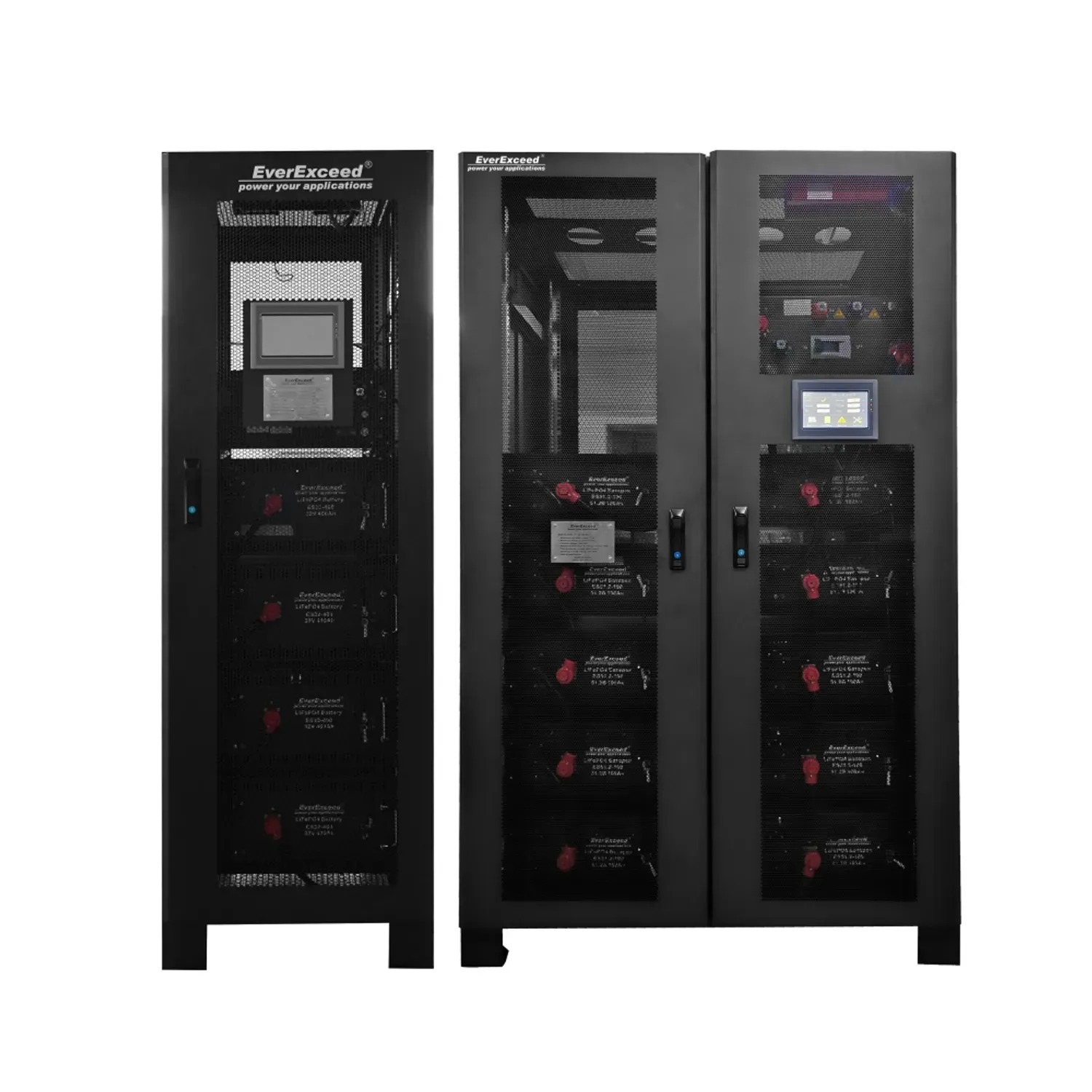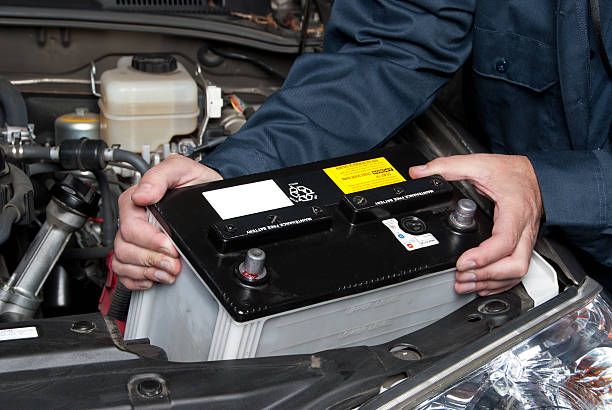
Get a Quote
Can I Replace My UPS Battery with a Car Battery?
In today's fast-paced world, having an uninterrupted power supply (UPS) system at home or in the office is essential. UPS systems keep important devices like computers and routers running during power outages. But when the UPS battery fails, a common question is: can I replace my UPS battery with a car battery?
Understanding the UPS Battery
A UPS battery is designed to provide backup power in the event of a power failure, ensuring that devices continue to operate without interruption. Typically, UPS systems use sealed lead-acid (SLA) batteries or lithium-ion batteries, some even use UPS LiFePO4 battery. These batteries are engineered to deliver a consistent voltage and are optimized for the specific requirements of UPS systems.
How a UPS Battery Works
The primary function of a UPS battery is to maintain a stable power supply. When the main power source is functioning correctly, the UPS battery remains in a charged state, ready to take over if a power outage occurs. Upon detecting a power failure, the UPS immediately switches to battery power, allowing connected devices to remain operational for a designated period. This buffer time can range from a few minutes to several hours, depending on the UPS battery's capacity and the power consumption of the connected devices.
The Car Battery
Car batteries, on the other hand, are designed for a very different purpose. They are built to deliver a high burst of current over a short period to start a vehicle's engine. Once the engine is running, the alternator takes over, and the battery’s primary role is complete until the next start. This fundamental difference in design and function raises the question of compatibility when considering a car battery as a replacement for a UPS battery.
UPS Battery vs Car Battery
- Battery Types: UPS batteries often include various types of batteries such as gel, lead-acid, and increasingly common, lithium batteries. While car batteries typically are lead-acid batteries unsuited for long-term energy discharge and storage.
- Voltage and Capacity: Car batteries are typically 12-volt batteries with a high cranking amperage, designed to deliver a short burst of high current. In contrast, UPS batteries are designed to provide a steady and continuous supply of power. They are available in a variety of voltage outputs (e.g., 24V, 48V, 72V).
- Discharge Characteristics: Car batteries are not built for deep discharge cycles. Using a car battery in a UPS system would likely result in rapid degradation and failure because they are not designed for continuous discharge and recharge cycles.
- Safety and Maintenance: Car batteries require more maintenance and can release harmful gases during charging, whereas UPS batteries are usually sealed and maintenance-free, providing safer operation in enclosed spaces.
Can I Replace My UPS Battery with a Car Battery?
Replacing your UPS battery with a car battery is generally not recommended. While it might work in some cases, car batteries and UPS batteries are designed for different purposes. Car batteries are built for short, high-current bursts to start an engine, while UPS batteries are designed for deep cycling and providing steady power over a longer period. Using a car battery in a UPS could lead to reduced performance, potential damage to the UPS, and safety hazards. It's best to use a battery specifically designed for UPS systems.
Why is it Not Recommended to Use a Car Battery for a UPS?
Technical Feasibility
While it might be technically possible to connect a car battery to a UPS system, several critical factors need to be considered:
- Voltage Matching: Ensure that the car battery;s voltage matches the UPS battery's voltage. Most UPS systems use 12-volt batteries, so a car battery might seem like a viable option in terms of voltage.
- Capacity and Runtime: Car batteries have a different capacity rating compared to UPS batteries. Even if the voltage matches, the runtime and performance might not meet the UPS requirements, leading to inadequate backup power duration.
- Discharge Rate: As mentioned earlier, car batteries are not designed for deep discharge cycles. This mismatch in discharge characteristics can cause premature battery failure and potentially damage the UPS system.
Practical Considerations
- Space and Compatibility: Car batteries are generally larger and heavier than UPS batteries. Ensuring a proper fit and securing the battery within the UPS system can be challenging.
- Charging and Maintenance: Car batteries require regular maintenance and monitoring, which is not the case with most UPS batteries. Additionally, the charging mechanisms differ, and using a car battery might necessitate modifications to the UPS charging circuit.
- Safety Risks: Car batteries can emit gases such as hydrogen when charging, posing significant safety risks, especially in enclosed spaces. UPS systems are typically designed to be used indoors, where ventilation might be limited.
Alternatives for UPS Batteries
If your UPS battery has failed, it's crucial to explore alternatives that are designed to meet the specific needs of your UPS system. Here are some recommended options:
OEM Replacement Batteries
Opting for an Original Equipment Manufacturer (OEM) replacement battery is often the best choice. These batteries are designed to match the specifications of your UPS system, ensuring optimal performance and safety. While they might be more expensive, OEM batteries provide the reliability and peace of mind that comes with using a product specifically engineered for your UPS.
High-Quality Third-Party Batteries
Several reputable third-party manufacturers produce high-quality UPS batteries that meet or exceed OEM specifications. These batteries can offer a cost-effective alternative without compromising on performance or safety. Be sure to choose a battery from a well-known brand with positive reviews and a good track record.
Upgrading Your UPS System
If your UPS system is old or its battery is difficult to replace, it might be worth considering an upgrade. Modern UPS systems come with improved efficiency, longer battery life, and enhanced features such as network management capabilities. Investing in a new UPS system can provide better protection for your devices and reduce the likelihood of future battery issues.
Read more: How to Choose Battery for UPS?
Maintaining Your UPS Battery
Regardless of the battery you choose, proper maintenance is key to extending its lifespan and ensuring reliable performance. Here are some tips to keep your UPS battery in top condition:
Regular Testing
Periodically test your UPS system to ensure that the battery is functioning correctly. Most UPS systems have a self-test feature that you can use to check the battery’s health and performance.
Proper Environment
Keep your UPS system in a cool, dry, and well-ventilated area. Extreme temperatures can negatively impact battery life and performance. Avoid placing the UPS in areas with high humidity or direct sunlight.
Timely Replacement
UPS batteries have a finite lifespan, typically ranging from 3 to 5 years. Monitor the age of your battery and replace it promptly when it shows signs of wear or reduced capacity.
Conclusion
In conclusion, while the idea of replacing a UPS battery with a car battery might seem like a cost-effective solution, the technical and practical challenges make it a less than ideal choice. Car batteries and UPS batteries are designed for very different applications, and using them interchangeably can lead to poor performance, safety risks, and potential damage to your UPS system.
Instead, it's crucial to invest in reliable and efficient energy storage solutions that are specifically designed for UPS systems. EverExceed offers a wide range of uninterrupted power supply (UPS) systems and data center lithium-ion batteries that provide reliable, high-performance backup power solutions. EverExceed’s UPS systems and data center lithium-ion batteries are engineered to meet the unique demands of providing uninterrupted power supply, offering a superior alternative to car batteries. With EverExceed, a Chinese lithium ion battery manufacturer, you can count on dependable backup power solutions that deliver optimal performance and safety for your critical equipment.


